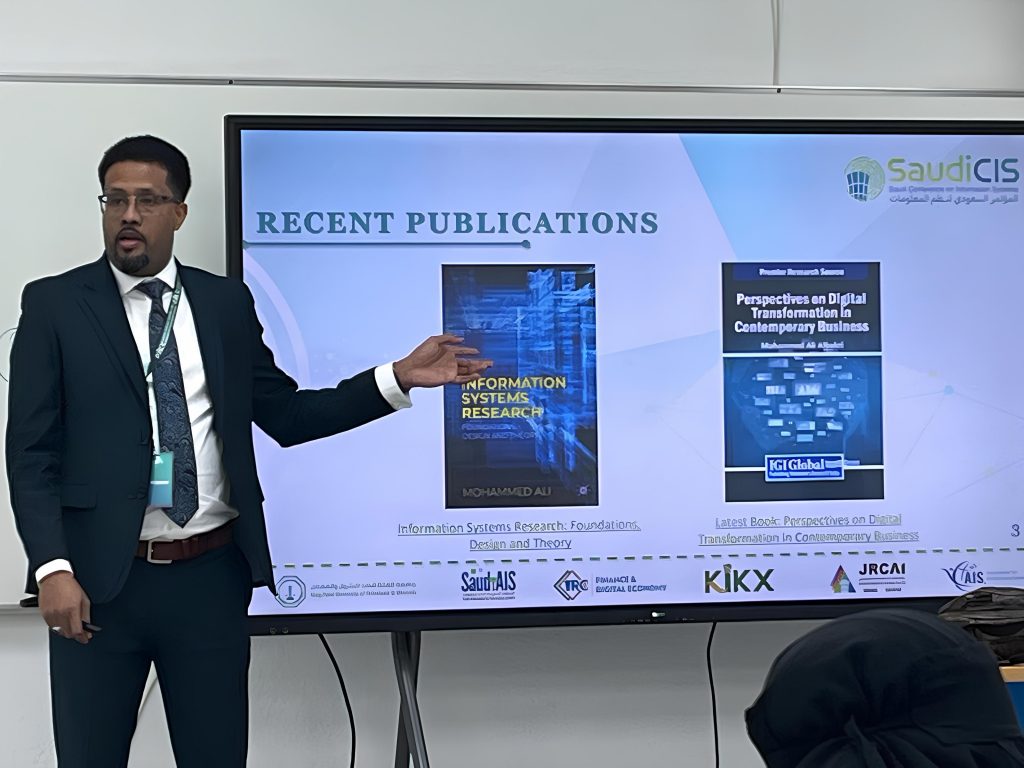Earlier this month, the University of Salford’s Lecturer in Digital Business and Information Systems, Dr Mohammed Albakri, presented his research at the 1st Saudi Conference on Information Systems (SaudiCIS) 2024, held at King Fahd University of Petroleum and Minerals. The conference brought together global scholars, practitioners and policymakers to discuss cutting-edge advancements in information systems.
Mohammed’s presentation centred on “regional analysis of the AI adoption paradox from multiple perspectives,” and delved into a systematic review of global AI adoption. The research identifies regional trends, challenges and enablers of AI implementation, using a multi-perspective framework categorised as technical, organisational and personal (TOP).
Key research insights

The findings of Mohammed’s research highlight the sharp increase in AI adoption research post-2019, coinciding with digital transformation efforts globally. The UK and US lead in research output, with emerging economies like India and Malaysia catching up. The findings underline significant differences between developed and developing regions. Developed nations focus on infrastructure and ethical challenges, while emerging economies prioritise innovation and efficiency gains.
One of the standout themes was the interplay of technical readiness, organisational strategies, and personal attitudes. For instance, robust technical infrastructure and strategic leadership are essential for successful adoption, but personal readiness and workforce engagement are equally critical. Ethical concerns also emerged as pivotal, particularly in western contexts where fears of job displacement influence adoption strategies.
Future directions
Building on this research, Mohammed aims to investigate underexplored regions and deepen the socio-technical analysis of AI adoption. Expanding beyond technical and organisational readiness, his future studies will explore how cultural contexts and ethical considerations shape adoption patterns.
As AI continues to evolve, understanding its complex nature and its transformative potential alongside its barriers, remain critical to ensuring equitable and effective integration.